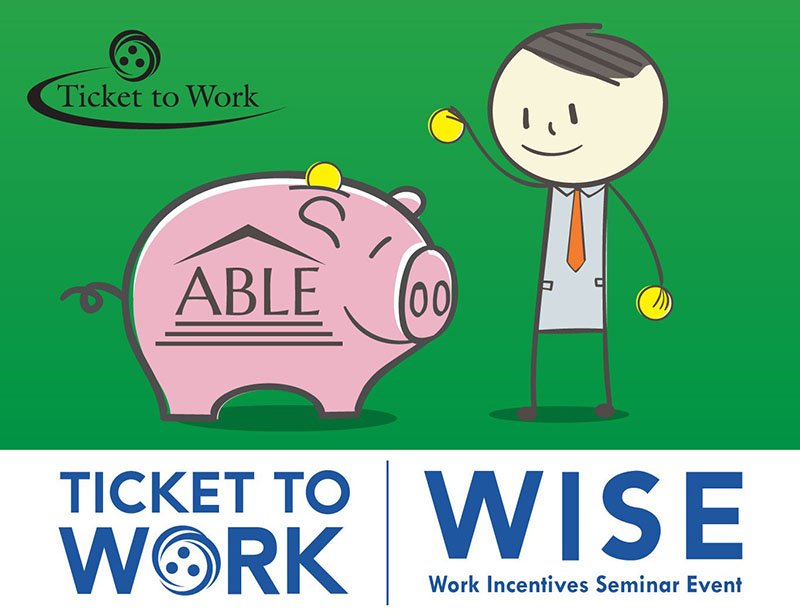ABLE Accounts: What You Should Know
 If you couldn't attend the October Work Incentives Seminar Event (WISE) webinar on ABLE accounts, you can get caught up now!
If you couldn't attend the October Work Incentives Seminar Event (WISE) webinar on ABLE accounts, you can get caught up now!
Achieving a Better Life Experience (ABLE) Accounts are tax-advantaged savings accounts that are available to certain people with disabilities. By opening an ABLE Account, you may be able to save more money each year to help you pay for disability-related expenses.
More than 500 people attended the webinar, and we received some great questions from the audience. Today, we're answering the top 3 questions that were asked to help you learn more about ABLE accounts and find out if opening an ABLE account may help you on your path to financial independence.
How do I open an ABLE account?
The ABLE Act limits eligibility to people with disabilities who had an onset of disability before they turned 26. If you meet the eligibility criteria, you must choose the state in which you plan to open your account. More than half of the states in the country have launched ABLE programs, and you are not required to establish your account in the state where you live. To help you decide, use the state comparison tool and review tips for opening your ABLE account. Then, visit the program website of that state and complete the application.
Up to $14,000 per year in 2017 can be deposited into an ABLE account by a beneficiary, family, friends or an employer. This limit will increase to $15,000 in 2018.
What can ABLE account funds be used for?
ABLE account funds can be used for "qualified disability-related expenses" (QDE). A QDE is any expense the beneficiary incurs as a result of the disability. These may include expenses related to education, housing, transportation, employment training and support, assistive technology, personal support services, healthcare expense, financial management and administrative services, and other expenses that help improve health, independence and/or quality of life.
Although you do not need to submit receipts for the expenses, they should be kept along with other documentation of the expenditure. If you're unsure whether something is a QDE, you can check with the Internal Revenue Service (IRS), the only organization that can make that decision.
How do ABLE accounts affect my Social Security disability benefits?
If you receive SSDI, are working, and deposit part or all of your earnings into an ABLE Account, Social Security still considers this deposited money as "countable earnings" and applies Work Incentives to determine if you're engaging in substantial gainful activity (SGA). However, deposits made into an ABLE account by others are not considered countable income for determining SGA.
However, if you receive SSI benefits, the ABLE Act sets further limitations. According to the LEAD Center, the first $100,000 in your ABLE Account would be exempted from the SSI $2,000 individual resource limit. If and when your ABLE Account exceeds $100,000, your SSI benefit payment would be suspended until the account falls below $100,000. It is important to note that while your eligibility for a benefit payment is suspended, this has no effect on your ability to receive or be eligible to receive medical assistance through Medicaid.
About Ticket to Work
Social Security's Ticket program supports career development for people ages 18 through 64 who receive Social Security disability benefits (SSI or SSDI) and want to work. The Ticket program is free and voluntary. It helps people with disabilities move toward financial independence and connects them with the services and support they need to succeed in the workforce.
Learn More
You can call the Ticket to Work Help Line at 866-968-7842 or 866-833-2967 (TTY) Monday through Friday, 8 a.m. to 8 p.m. ET. Ask a representative to send you a list of service providers or find providers on your own with the Ticket program Find Help tool.